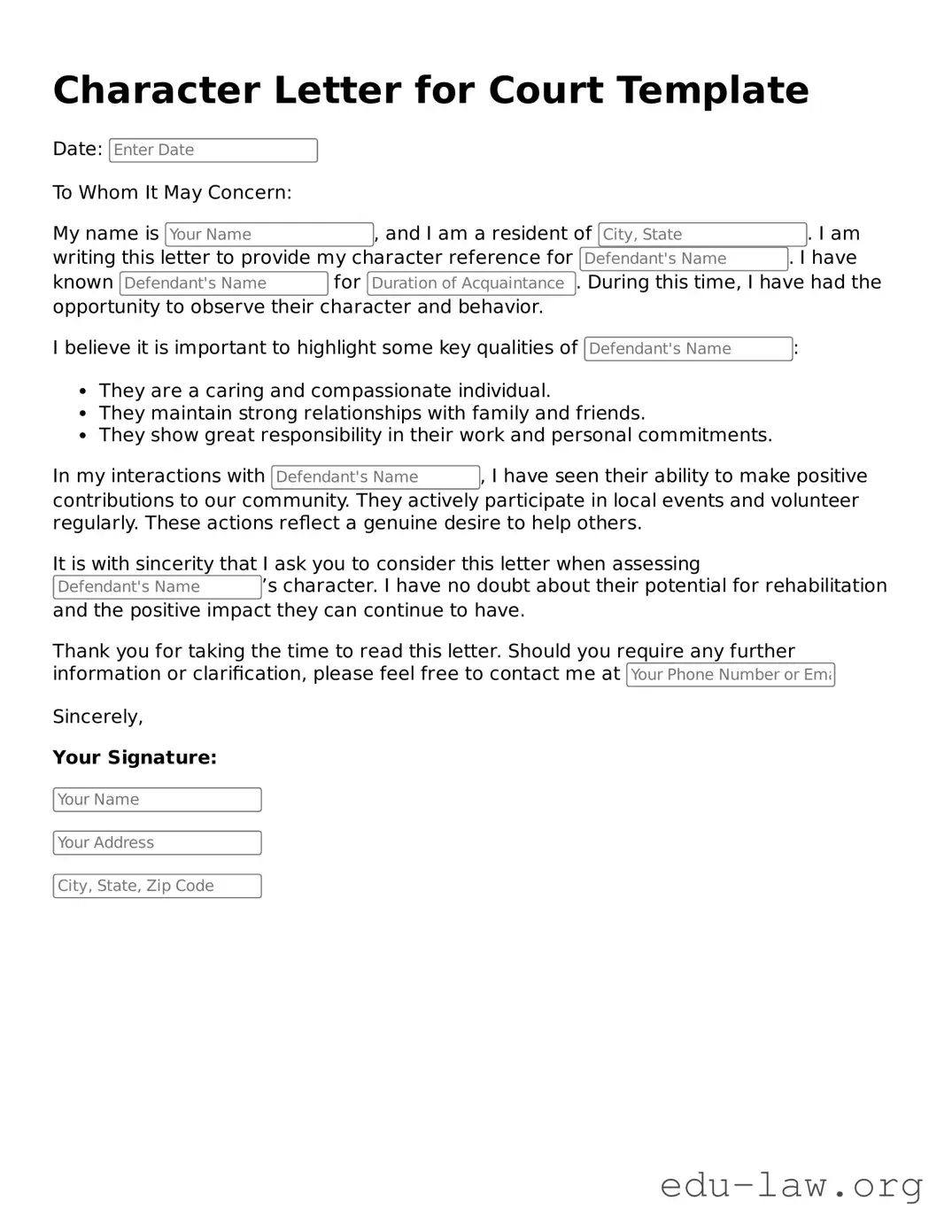What is a Character Letter for Court?
A Character Letter for Court is a written statement that attests to an individual's character. It is often requested during legal proceedings, such as sentencing or child custody cases. The letter provides the court with insights into the individual’s behavior, values, and contributions to the community, serving as a reflection of their character from the perspective of someone who knows them well.
Who should write a Character Letter?
Typically, someone who knows the individual personally or professionally should draft the letter. This could be a friend, family member, employer, or community leader. It is important that the writer has a positive view of the individual’s character and can provide specific examples to support their claims.
What should be included in a Character Letter?
A Character Letter should include the writer's relationship to the individual, specific examples of positive character traits, and any relevant experiences that illustrate the individual's behavior. Additionally, it might highlight the individual's contributions to the community and any changes they have made since the incident in question. The letter should be respectful and focused on the individual’s strengths.
How long should a Character Letter be?
While there is no strict length requirement, a Character Letter should generally be one to two pages long. This length allows the writer to include enough detail and personal anecdotes, while remaining concise and to the point. Clarity and relevance are key.
Is there a specific format for a Character Letter?
Yes, there are general guidelines to follow. The letter should be typed, dated, and addressed to the appropriate court. It should start with a greeting, such as "Dear Honorable Judge [Last Name]." Following the introduction, elaborate on the relationship and include specific examples of the individual’s character. Conclude the letter with a respectful closing and the writer’s signature and contact information.
How should the tone of a Character Letter be?
The tone of a Character Letter should be formal yet compassionate. It should convey sincerity, respect, and an understanding of the seriousness of the situation. Avoid overly emotional language or extreme claims. Instead, focus on providing a balanced view of the individual’s character.
Can I write a Character Letter if I have a complicated relationship with the individual?
If you feel you can provide a fair and honest perspective, you may still write a Character Letter. It is important to be transparent about your relationship. Acknowledging any difficulties might provide a more nuanced view of the individual while still highlighting their positive traits and potential for growth.
How can a Character Letter impact a court case?
A Character Letter can provide the court with valuable insights into the individual’s character that may not be evident from legal documents alone. It may influence the judge's perception, potentially leading to more lenient sentencing or favorable custody arrangements. However, it is essential to remember that it is only one piece of the larger puzzle of the legal proceedings.
When should a Character Letter be submitted?
Character Letters are typically submitted before a court hearing, particularly during sentencing or custody cases. It is wise to coordinate with the legal counsel involved to ensure that the letter is submitted at the appropriate time and in the correct format. This ensures that it is considered by the judge when making a decision.
Is it important to proofread a Character Letter?
Absolutely. A well-written and error-free Character Letter enhances its credibility. Taking the time to proofread ensures that the letter is clear and professional. Spelling and grammatical mistakes can detract from the message and may even raise questions about the seriousness of the writer's perspective.
